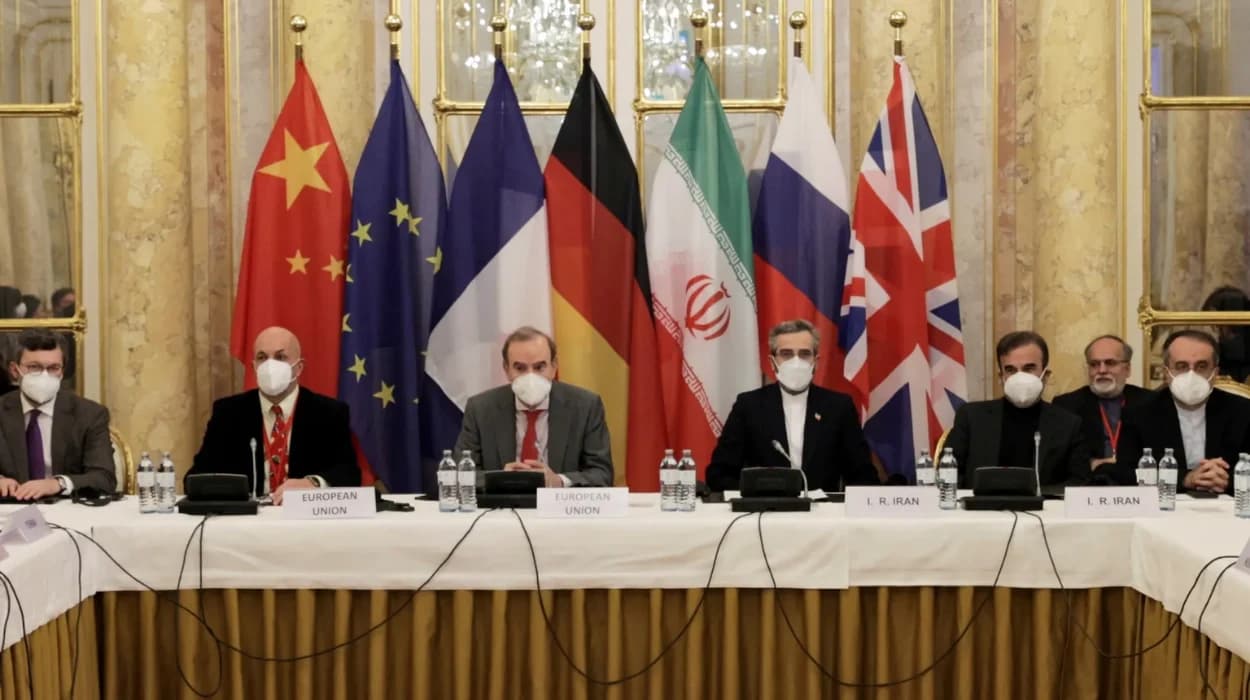Iran has declared that it is no longer bound by the
constraints of the landmark 2015 nuclear agreement, with the accord officially
lapsing after ten years. Despite this, Tehran maintains its commitment to
diplomatic efforts, amidst ongoing tensions and international repercussions.
Iran Ends Restrictions on Nuclear Activities as Deal Expires
As reported by Al Jazeera, Iran announced on Saturday,
October 18, 2025, that it has fully terminated all restrictions outlined in the
Joint Comprehensive Plan of Action (JCPOA), also known as the 2015 nuclear
deal. This development comes exactly ten years after the UN Security Council
adopted resolution 2231, which enshrined the agreement.
The announcement follows the expiry of the ten-year accord, which was meant to curb Iran’s nuclear ambitions in exchange for sanctions relief. Iran’s Ministry of Foreign Affairs issued a statement affirming that
"all the stipulations [of the 2015 agreement], including the limitations on Iran's nuclear activities and the associated mechanisms are deemed null and void".
Historical Context and Breakdown of the Deal
The JCPOA was originally negotiated between Iran and six
global powers — the United States, the United Kingdom, France, Germany, Russia,
and China — during a complex geopolitical process that began in 2013 and
culminated in July 2015. Under the agreement, Iran committed to limiting its
nuclear programme, including reducing its stockpile of enriched uranium,
ceasing the development of advanced centrifuges, and allowing international
inspections.
In exchange, sanctions imposed on Iran related to its
nuclear activities were lifted. The deal was seen as a significant diplomatic
breakthrough aimed at preventing Iran from developing nuclear weapons and
encouraging peaceful nuclear energy use.
However, the United States, under President Donald Trump,
unilaterally withdrew from the agreement in May 2018, reimposing extensive
sanctions. Tehran responded by accelerating its nuclear activities, which drew
widespread international concern.
Reimposition of UN Sanctions and Diplomatic Failures
Efforts to revive the JCPOA have faced persistent obstacles.
In August 2025, Britain, France, and Germany initiated the “snapback” mechanism
— a provision allowing parties to reinstate UN sanctions if Iran violates the
deal — after accusing Iran of increasing its uranium enrichment levels and
installing advanced centrifuges beyond agreed limits.
Despite Iran’s rejection of these accusations, the UN reimposed sanctions last month, marking the effective end of the deal’s legal standing and narrowing diplomatic options. An expert from the Arms Control Association stated,
“Termination day is relatively meaningless due to snapback,”
highlighting the diminishing diplomatic significance of the expiry date.
Iran’s Nuclear Advances and International Concerns
Iran’s nuclear programme has remained a focal point of
international scrutiny for decades. As of May 2024, Iran was enriching uranium
at 60% purity — far above the civilian-use threshold — with estimates
suggesting it could produce enough weapons-grade material for a nuclear bomb
within weeks.
The International Atomic Energy Agency (IAEA) reports indicate Iran’s stockpile of enriched uranium is now more than twenty times the limits set by the JCPOA, reaching over 408 kilograms of uranium enriched to 60%, nearing weapons-grade purity.
"Iran is the only non-nuclear-weapon state to produce such material,"
the IAEA noted in their October 2023 report,
raising deep concerns about nuclear proliferation.
Iran’s nuclear activities include installing advanced
centrifuges and constructing new enrichment sites, which further intensifies
global fears of possible military utilisation. Analysts warn that Iran’s
breakout time — the period needed to produce enough fissile material for a
weapon — has significantly shortened.
Iran’s Motivations and International Reactions
Iran asserts its nuclear pursuits are solely for peaceful
purposes, though international agencies and many countries have questioned
these claims. Experts suggest that Iran’s programme also functions as a
strategic tool to bolster national sovereignty, project power in the MiddleEast, and deter external threats.
The US’s intelligence reports suggest Iran may be exploring
weaponisation options, with some analysts indicating the country could develop
a nuclear weapon within months if it chooses to escalate. Furthermore, Iran’s
strengthened stance was exemplified in June 2025 when the country’s regime
threatened US bases in the Middle East, stating that all American targets are
within reach if hostilities ensue.
Military Tensions and Regional Dynamics
The renewal of Iran’s nuclear activities has led to
heightened military tensions. On June 12, 2025, the IAEA found Iran
non-compliant with its nuclear obligations for the first time in two decades.
Israel responded swiftly with a series of strikes targeting Iranian nuclear
facilities, including damage inflicted on Natanz and other key sites. The
United States joined in the following days, bombing three Iranian nuclear
locations, as part of escalating regional hostilities.
International Responses and Sanctions
On September 29, 2025, the United Kingdom, France, and
Germany again imposed sanctions on Iran, citing its increasing nuclear
capabilities and failure to comply with earlier commitments. The UK government
outlined in a statement that Iran’s continued enrichment activities lack
"any credible civilian justification" and represent a significant
threat to regional stability.
The United Nations Security Council reimposed sanctions as well, effectively ending the JCPOA's international framework. Experts like Kelsey Davenport from the Arms Control Association noted that
“termination day is relatively meaningless due to snapback,”
emphasising that the re-imposition of
sanctions had rendered the original deal defunct.
The official end of the 2015 nuclear deal marks a significant shift in Iran’s nuclear policy and regional security dynamics. While Tehran maintains its stance on peaceful intentions and expresses a commitment to diplomacy, international concerns over its nuclear advancements persist. The future of diplomatic engagement remains uncertain, with the global community closely monitoring Iran’s activities amid rising tensions.
